A few months ago I did a terrible thing. I was tending to my patio plants, barefoot, when I disturbed an ants’ nest under a pot. The feisty invertebrates were furious. They flung themselves at my toes, sinking their mandibles into my exposed pink flesh. It hurt. A lot. As my foot ballooned up, red mist clouded my judgement. I grabbed the kettle and doused my attackers with boiling hot water. A few seconds later, all that remained was a puddle full of tiny, floating bodies.
In hindsight, I am horrified at my actions. I consider myself an animal lover and protector of wildlife. My pesticide-free garden is full of wildflowers, messy corners and insect havens. The store where I keep my chicken food is visited regularly by wood mice. Like a scene from Beatrix Potter, they climb into the tall bin at night, then are too fat and too full to escape. In the morning I simply let them go, serenading them to the tune of Que Sera, Sera.
Moths I’m kind to as well. I have a light trap, which I put out at night to lure them for a closer look. The insects are unharmed and often I carefully transfer them to clear plastic pots while I identify them. Sometimes, a gravid female will lay eggs and, although it may seem ridiculous, I feel a sense of responsibility. Many’s the brood of caterpillars I have raised because their mother ‘gave birth’ in my care.
It’s time we learned to love the spiders in our bathtub and ants on our patios.
If a spider or ladybird is spotted in my house, it is dutifully caught and relocated to the outside world, yet I have, in the past, flattened flies and massacred mosquitoes. What double standards are these? I am a hypocrite wrapped in a tangled web of contradiction and double standards. I call myself a wildlife enthusiast but have blood on my hands.
I am not alone, however. Our attitudes to the so-called ‘pests’ we share our spaces with are varied and complex. They range from the laid back ‘live and let live’ approach, where nibbled cabbages are the price paid for happy wildlife, to the vegetable patch vigilantes, an elite horticulturalist corps that come armed with spray guns and chemical weapons. There are those who would, literally, never harm a fly; and those who are prepared to lynch wasps guilt-free because, they would have us believe, “it’s either us or them”.
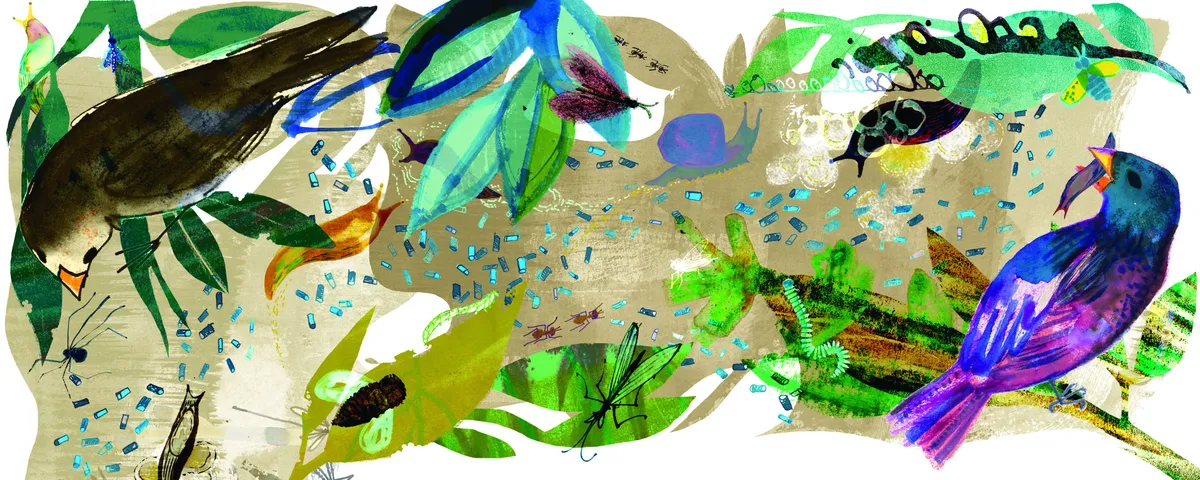
Like most people, I am somewhere in the middle, with an ethical boundary that oscillates wildly depending on the species, context and swelling of the affected body part. I don’t imagine there is a BBC Wildlife reader out there who hasn’t, at some point, deliberately killed a pest of some sort.
Conflict like this is unavoidable, (although I continue to beat myself up about the patio ants). The word ‘ecology’ derives from the Greek word oikos, meaning ‘dwelling’, and our homes and gardens are indeed their own little ecosystems. These are created via the interactions that occur between the component species.
In our human-made ecosystems, we call the shots. “It’s your space to occupy, so it’s up to you to set the rules,” says scientist and gardener Martin Coath of Plymouth University. “You get to choose what stays and what goes, what lives and what dies.”
Some ant species, for example, can become a genuine problem. “Their nests become so engrained and widespread and populated that the soil becomes undermined,” says Coath. “Things don’t grow and people can no longer enjoy their gardens.” Left unchecked, these upstart ants could rise to power in our back gardens, wresting control of the ecosystem from our fingers.
It’s a similar scenario for wasps, slugs and other putatively troublesome animals. If we let them reign unchecked, they can become a nuisance. “It becomes a direct case of competition between two potentially dominant species,” Coath says. So we have a choice. Either they take control, or we do.
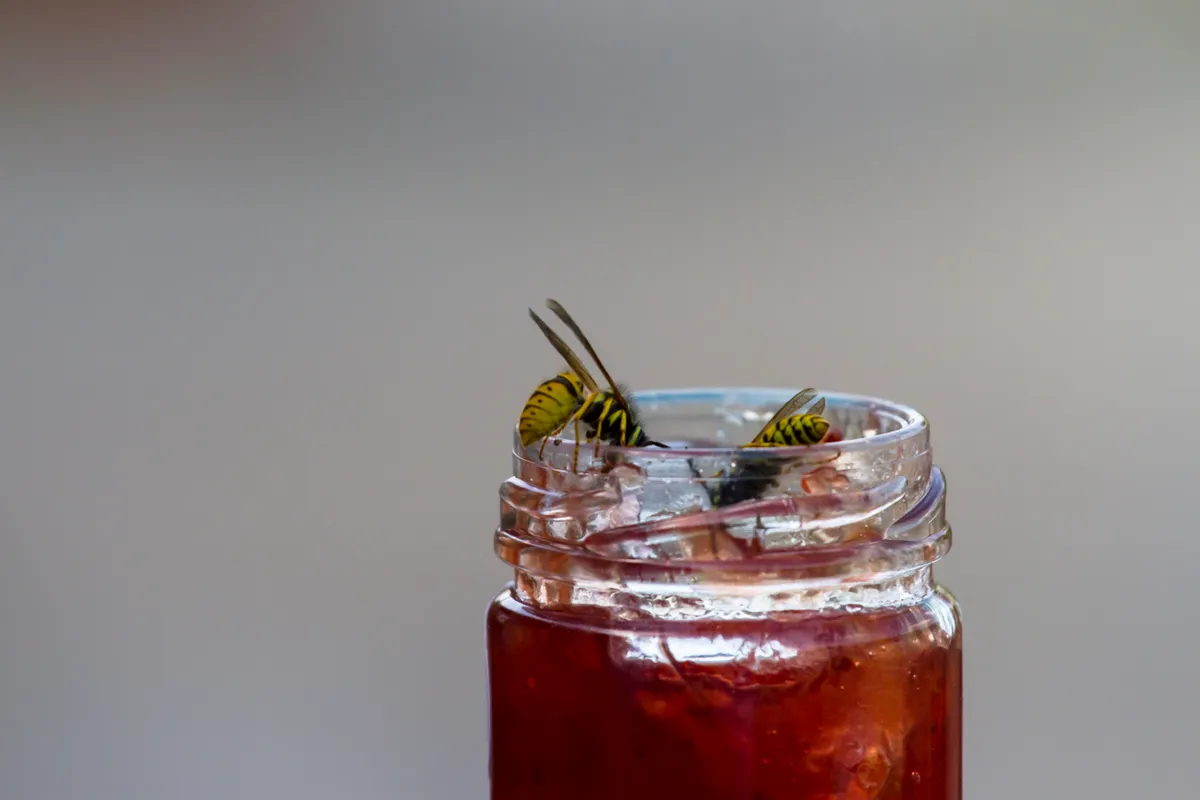
Things are no different in other, more natural, ecosystems that were not created by humans. Inside the USA’s Yellowstone National Park, for example, wolves are top dog. They control the deer population, which in turn influences the growth of plants and numbers of many other animals. In the North Pacific Ocean, sea otters prey on urchins, which in turn helps to regulate coastal kelp forests. In the freshwater rivers of Devon and Scotland, beavers fell trees to make dams, creating habitat for countless other creatures.
Species compete, and as a result there are always winners and losers – except that my human brain helps me to ponder the implications of my actions. Wolves may well be wily, but they don’t consciously decide how to manage their ecosystem. We, however, are different. We are capable of thought at a deeper level and make conscious decisions about how best to manage the ecosystems we maintain, and are capable of realising there is more than one possible course of action. And yet, our behaviour is sometimes far from rational.
We are ‘ugly-ist’ and ‘species-ist’. We are prejudiced against the animals that we find unattractive.
Often it’s visceral. I have a friend who swats bluebottles because, and I quote, “they’re just so annoying”. When I was attacked by ants on my patio, the logical response would have been to replace the plant pot in its original position and walk away. Then put some shoes on.
Meanwhile, in the vegetable patch, it could be argued that the logical response to caterpillars that feed on brassica plants would be to go back in time, Terminator-style, and hunt down the parents that will one day produce them. But do gardeners charge around killing cabbage white butterflies? No, they do not. Instead they target the larvae, which through no fault of their own have simply hatched in what is deemed to be the wrong place.
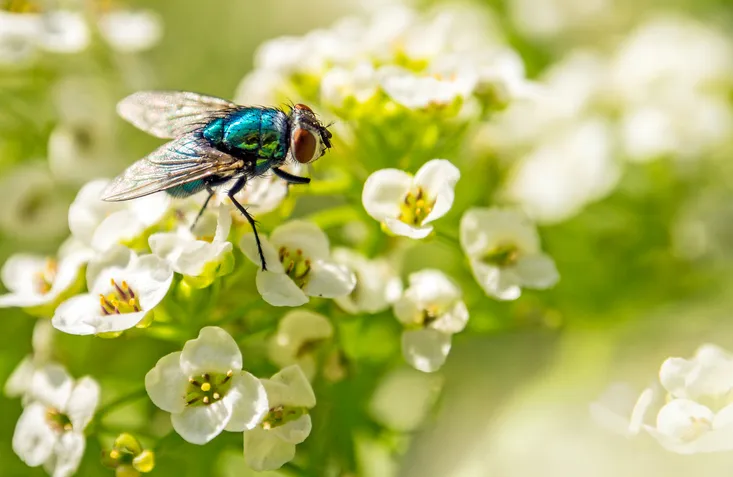
Which brings me to another point. We are ‘ugly-ist’ and ‘species-ist’. We are prejudiced against the animals that we find unattractive. We love butterflies, but we hate caterpillars because they’re creepy and crawly. Spiders can’t win because they have eight legs. Slugs can’t win because they are slimy and have one foot. All too often, we tar different species within the same taxonomic family with the same dismissive brush. The same friend who swats bluebottles tells me he kills all wasps and spiders and slugs at his property because “they’re all a nuisance”.
No, they’re not. There are more than 9,000 species of wasp of which but a few are the colony-living, nest-building, haranguers of picnic nightmares. Most don’t even have stingers. None of the UK’s 650 or so spider species are dangerous, and there are around 40 species of British slug, of which only a handful are genuine pests. It’s time we cut them some slack.
This species-ism reaches new heights when people put down slug pellets. It’s a loathsome and short-sighted strategy that indiscriminately kills all slugs. When they are poisoned, then consumed by predators, the toxins pass up the food chain. Hedgehogs, frogs and birds such as song thrushes are all affected, yet the poisoners turn a blind eye. These predators need your understanding and your garden needs slugs; they play a vital role breaking down detritus and recycling nutrients.
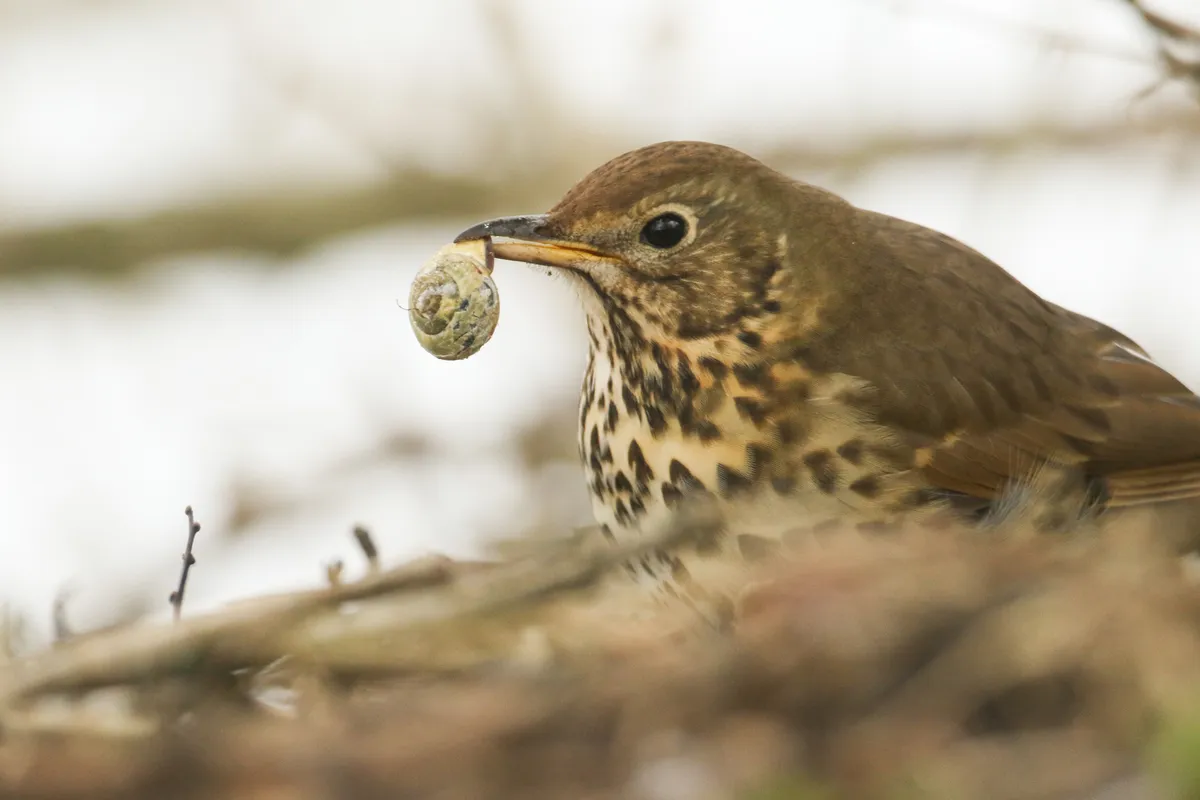
Wasps are important pollinators and predators. Spiders eat a lot of insects and are themselves a tasty snack for predators further up the food chain. “All these animals are needed and all of them play vital ecological roles,” says Paul Hetherington of Buglife. “Yet we demonise them. I really think we need to be more understanding.”
I blame garden centres. Garden centres are purveyors of the fake and the sterile. Just as trashy magazines promote a skewed reality of impossibly beautiful women with impossibly successful lives, so too garden centres sell an image of impossibly perfect plants. They are not nibbled, wilting or brown around the edges. They are not dusted with insect eggs or laden with invertebrate stowaways.
Indeed, a friend once told me that when he worked at a garden centre, any snails that were spotted were removed and then lobbed into a bucket of salty water.
Garden-centre plants are rather like the Photoshopped models of women’s magazines; retouched to the point where they no longer reflect reality. Real plants are not uniform and blemish-free. Outside my window, a straggly buddleia, or ‘butterfly bush’, lolls lopsidedly onto the patio. Its leaves are pockmarked due to mullein moth caterpillars, but that only makes me love it more. I like my perfectly imperfect garden the way it is; warts, snails, slugs and all.
Perhaps it’s no surprise that these animals are attracted to our private and public spaces, when we fill them with such delicious and irresistible fancies. Certain slug species, for example, are attracted to the fresh shoots of newly sprouted plants, as this is what they have evolved to eat.
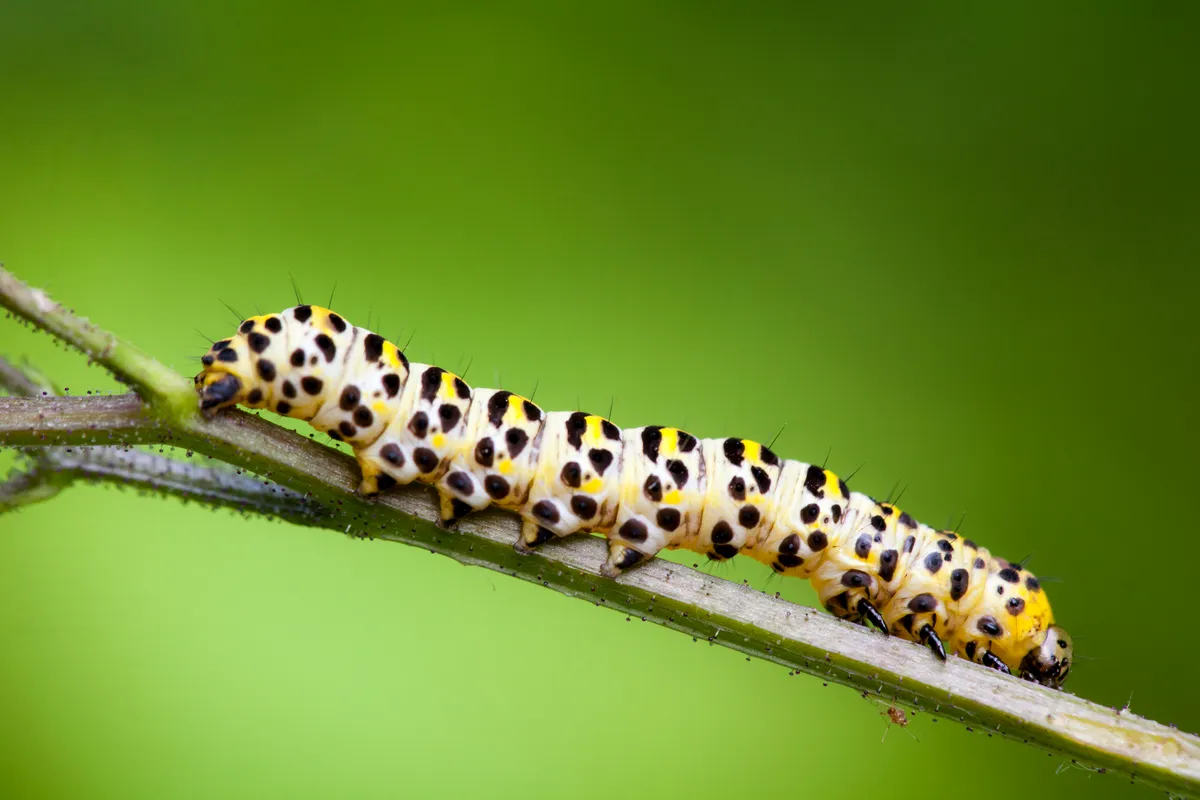
“We breed vegetation that smells nice to them,” says Jon Ablett, a senior curator of molluscs at the Natural History Museum. “We plant spineless plants that are easier for them to eat. We remove the weeds for them and we till the soil so it’s easier for them to move around. We make our garden a nice place for slugs to be. We might as well put up a neon sign saying: ‘Slugs! Get your free all-you-can-eat buffet here!’”
It is ridiculous to think that we can segregate plants from invertebrates. It’s invertebrate apartheid and it needs to stop. Some people tell me that killing the odd insect here or there matters little when you consider how numerous they are, and that insects don’t feel pain anyway so “it really doesn’t matter”.
But these arguments hold no water. A study of German nature reserves last year found that three-quarters of flying insects have vanished over the last 25 years. It’s been dubbed an “ecological Armageddon”. The UK is one of the most nature-depleted countries in the world. We should be turning our gardens into wildlife havens, not wildlife deserts.
The thoughtless, blasé fashion with which people swat flies, poison slugs or squash spiders perpetuates the mind set that these animals are worthless.
Nor does the knowledge that other invertebrates are faring better give us the right to kill them. Although no one knows for sure whether invertebrates feel pain – and it’s likely they do, since pain is one of the oldest and evolutionarily most important sensations – this too is a moot point.
The thoughtless, blasé fashion with which people swat flies, poison slugs or squash spiders perpetuates the mind set that these animals are worthless. This is wrong. Children pick up on these cultural biases so it becomes a dangerous attitude that transcends generations. We should be inspiring our children and each other to tolerate and live alongside the species that share our domestic ecosystems.
It’s time we stopped vilifying these animals and instead begin to appreciate them for the evolutionary marvels that they are. It’s time we learned to love the spiders in our bathtubs, the ants on our patios and our motley ragbag vegetable patches.
I’m not proud of the ant incident on my patio, but can report that a few days after I lost the plot, the colony had recovered. I’m pleased. I acted without thought and allowed emotion to trump logic, yet our past actions need not define our future behaviour. We’re all conflicted over the way we treat these ‘pest’ species, but it’s never too late to adopt a more relaxed attitude. Next time I disturb an ants’ nest I will think before I act… then replace the plant pot and leave them alone.
Helen Pilcher is a science writer, lacklustre gardener and author of Bring Back the King: The New Science of De-extinction (Bloomsbury Sigma, £16.99)
